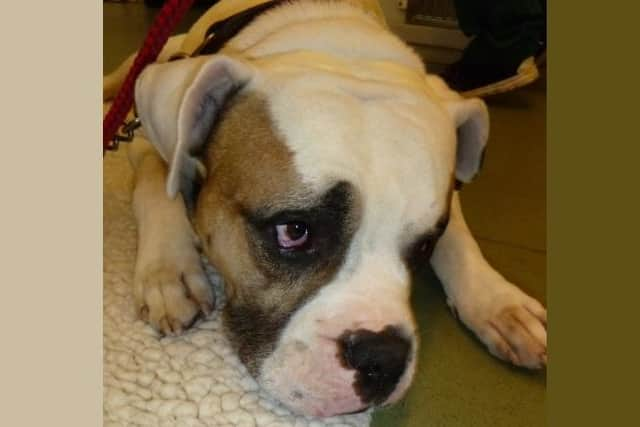Nearly 100 dogs were victims of intentional harm in Hertfordshire last year
and live on Freeview channel 276
Dogs are widely regarded as man’s best friend - but they are also the most persecuted pet in England and Wales.
According to new figures, released by the RSPCA, dogs are four times more likely to be the victims of intentional harm compared to cats.
Advertisement
Hide AdAdvertisement
Hide AdWhile there are an estimated 12 million dogs and 12 million cats being kept as pets in the UK (according to the Pet Food Manufacturers’ Association 2020 Pet Population Report), dogs are much more likely to be the victims of deliberate cruelty.


As part of its Cancel Out Cruelty campaign, the RSPCA is releasing new figures that highlight how - despite being called ‘man’s best friend’ - dogs are the most likely pet to be abused by their owners.
Over four years (2016-2020), 63,881 incidents of intentional harm involving dogs were reported to the RSPCA’s cruelty line; that’s 34 a day or more than one every hour across England and Wales.
In 2020, 7,691 reports of intentional harm against dogs were reported to the RSPCA.
Advertisement
Hide AdAdvertisement
Hide AdIn the South East, the charity’s officers investigated 1,244 incidents of deliberate cruelty towards dogs in 2020, and in Hertfordshire 98 incidents were reported to the RSPCA.
The campaign aims to raise funds to keep its rescue teams on the frontline saving animals in desperate need of help as well as raise awareness about how we can all work together to stamp out cruelty for good.
The RSPCA gets around 84,000 calls to its cruelty line every month and around 1,500 of those are about intentional cruelty. But the charity sees a rise in the summer by around 400 calls, on average, per month, which equates to 47 calls every day or two every hour.
The RSPCA’s rescue teams need support to stay out on the frontline as the only charity rescuing animals and investigating cruelty:
Advertisement
Hide AdAdvertisement
Hide Ad> £6 could help pay to feed a dog for a day in RSPCA care
> £10 could help pay towards bandages for a cat or dog
> £15 could help pay for a cat or dog’s clinical exam.
To donate to the Cancel Out Cruelty campaign and help the RSPCA continue to rescue animals in need, visit www.rspca.org.uk/stopcruelty.